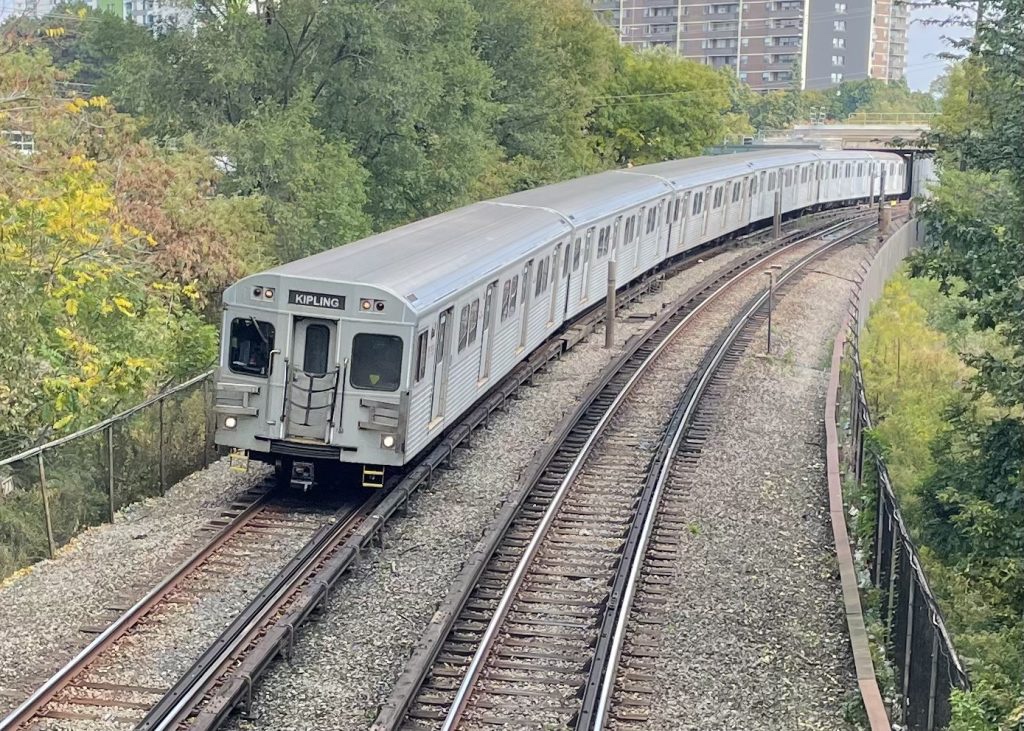
While construction begins on the newest subway lines across Toronto, the future of the key Line 2 that carries residents east and west of the city is up in the air.
The trains currently operating from Kipling to Kennedy are close to the end of their useful life, with the oldest ones having been in operation for 27 years. The price to replace them is expected to be $2.5-$3 billion based on last estimates for 80 new trains plus more needed for an extended Line 1.
However, a delay in securing the required funding is stopping them from being able to purchase the necessary trains.
“We had an Request for Proposals in the field but we had to pull that because we didn’t have the committed funding,” said TTC spokesperson Stuart Green.
Green said the trains right now are in good shape.
“They do require a little TLC as you can imagine when a car, a house, anything ages it requires a little extra attention.”
The current cost of the new trains could also change based on how long it takes to get funding. The City of Toronto would be contributing $800 million towards the project.
Mayor Olivia Chow acknowledged the lack of funding last month.
The Bloor subway cars, they are reaching their lifespan. Do we have money to order new ones? No,” Chow said.
“If we don’t get new trains, we have to rebuild the old trains. That’s not the most efficient way to do things. Rebuilding also doesn’t get us more trains and it doesn’t make them compatible with the new system,” Green said, adding he doesn’t think it’ll come to that.
Chloe Tangpongprush, spokesperson for the advocacy group TTC Riders, said they are concerned for the future of these trains.
“The trains that we do have, they’re getting really old and our concern is that in the future they’re going to get more and more unreliable and TTC has a massive state of good repair backlog,” said Tangpongprush.
“Trains are not something you can order from Amazon and get two days shipping. It’s a long time frame for them,” Tangpongprush added.
She said it’s ironic that the province and federal government are spending billions building new tunnels but we won’t have the trains to run down them.
“We need them to come to the table,” she added.
“The province and federal government have been there for us before. They’ve helped us with expansion of Bloor-Yonge, streetcars, subway trains in the past. We expect that they will be there again on capital projects because there’s a regional benefit,” Green told CityNews.
The derailment of the Scarborough RT in July has raised even more concerns about the state of good repair along Line 2. A recent look at the maintenance being done in the TTC’s Greenwood subway yard showed just how much work is needed.
“It’s all happening here. The shop’s overhauling components. We’re doing emergency repairs when the cars break down overnight,” said TTC Greenwood Yard manager AJ Spang.
The SRT was expected to stop operating in November, but the derailment, caused by loose bolts, pushed the date up.
Tangpongprush said something similar happening on Line 2 could be disastrous.
“Before COVID-19, Line 2 moved over half a million people every single day. It’s so important to the city. If it were to be crippled by a malfunction because the trains are getting too old, it would be completely disastrous to our city’s transit network,” shared Tangpongprush.
An update on the plan for Line 2 is expected to be brought to the TTC board meeting next month.
#Thetorontohouse #ovieoftoronto#thetorontohousecanada



